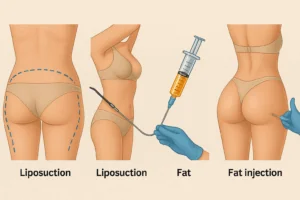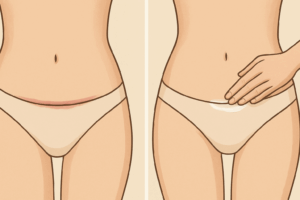Pregnancy is one of the most special and important periods in a woman's life. The nutrition of the mother during this period is critical for both her own health and the development of the baby. While proper nutrition supports the healthy growth of the baby, it also helps the mother to spend the pregnancy period more comfortably. In this article, we will discuss nutrition during pregnancy in detail.
Table of Contents
- The Importance of Nutrition in Pregnancy
- Basic Food Groups and Essential Nutrients
- Vitamins and Minerals to be taken during pregnancy
- Foods to Avoid During Pregnancy
- Weight Gain During Pregnancy
- Common Nutrition Problems and Solutions During Pregnancy
- Nutrition Recommendations According to Trimesters
- Tips for Vegetarian and Vegan Pregnant Women
- Fluid Consumption during Pregnancy
- Healthy Snacks and Sample Menu
1. Importance of Nutrition during Pregnancy
Nutrition during pregnancy is vital for the health of mother and baby. Nutrients taken during this period:
- Ensures healthy growth and development of the baby
- Strengthens the mother's immune system
- Reduces the risk of pregnancy complications
- Doğum sonrası toparlanma sürecini hızlandırır
- Positive impact on the baby's future health
Balanced and adequate nutrition reduces the risk of low birth weight, preterm birth and congenital anomalies.
2. Basic Food Groups and Essential Nutrients
The nutrition plan during pregnancy should include adequate consumption of the main food groups:
Proteins
- Importance: Essential for the baby's tissue development
- Sources: Eggs, meat, fish, chicken, legumes, dairy products
- Daily requirement: Approx. 71 grams (25 grams more than before pregnancy)
Carbohydrates
- Importance Provides energy, supports the baby's brain development
- Sources: Whole grains, fruits, vegetables
- Daily requirement: 45-65% of total calories
Fats
- Importance: Essential for the development of the baby's brain and nervous system
- Sources: Olive oil, nuts, walnuts, avocados, oily fish
- Daily requirement: 20-35% of total calories
Fibers
- Importance: Prevents constipation, balances blood sugar
- Sources: Whole grains, vegetables, fruits, legumes
- Daily requirement 25-30 grams
3. Vitamins and minerals to take during pregnancy
Folic Acid (Vitamin B9)
- Importance: Prevents neural tube defects
- Sources: Dark green leafy vegetables, legumes, whole grains
- Daily requirement 600-800 mcg
Iron
- Importance: Reduces the risk of anemia, increases the baby's oxygen carrying capacity
- Sources: Red meat, chicken, fish, dried fruits, dark green vegetables
- Daily requirement 27 mg
Calcium
- Importance: Essential for the baby's bone and tooth development
- Sources: Dairy products, dark green vegetables, almonds
- Daily requirement 1000 mg
Vitamin D
- Importance: Increases calcium absorption, supports baby's bone development
- Sources: Sunlight, oily fish, egg yolk
- Daily requirement 600 IU
Omega-3 Fatty Acids
- Importance Supports the baby's brain and eye development
- Sources: Oily fish (salmon, mackerel), walnuts, flaxseed
- Daily requirement 200-300 mg DHA
4. Foods to avoid during pregnancy
Some foods can pose a risk during pregnancy. It is important to avoid them:
- Raw or undercooked meat, fish and eggs (risk of Salmonella and Listeria)
- Unpasteurized dairy products
- Fish with high mercury content (shark, swordfish)
- Raw or undercooked sprouts
- Alcohol and high amounts of caffeine
- Processed meat products (salami, sausage, etc.)
- Unwashed fruits and vegetables
5. Weight gain during pregnancy
Healthy weight gain during pregnancy is important for the health of mother and baby. The recommended weight gain depends on the pre-pregnancy body mass index (BMI):
- Underweight (BMI < 18.5): 12.5-18 kg
- Normal weight (BMI 18.5-24.9): 11.5-16 kg
- Overweight (BMI 25-29.9): 7-11.5 kg
- Obese (BMI ≥ 30): 5-9 kg
Excessive weight gain can increase the risk of gestational diabetes and high blood pressure, while insufficient weight gain can increase the risk of low birth weight.
6. Common Nutrition Problems in Pregnancy and Solutions
Nausea and Vomiting
- Solution: Small and frequent meals, ginger tea, vitamin B6 supplements
Heartburn
- Solution: Eating little and often, not eating before bedtime, avoiding spicy and acidic foods
Constipation
- Solution: Consume fibrous foods, drink plenty of water, exercise regularly
Anemia
- Solution: Consume iron-rich foods and take them with vitamin C
Gestational Diabetes
- Solution: Balance carbohydrate intake, exercise regularly, monitor blood sugar
7. Nutrition Recommendations According to Trimesters
First Trimester (0-13 weeks)
- Paying attention to folic acid intake
- Eat small and frequent meals to reduce nausea
- Drink plenty of water
Second Trimester (14-26 weeks)
- Increase protein intake
- Eating foods rich in calcium and vitamin D
- Increase iron intake
Third Trimester (27-40 weeks)
- Increase intake of omega-3 fatty acids
- Consume healthy snacks to meet energy needs
- Focusing on fiber foods to prevent constipation
8. Tips for vegetarian and vegan pregnant women
Vegetarian and vegan pregnant women should pay particular attention to:
- Protein: Legumes, tofu, quinoa, eggs (for ovo-vegetarians)
- Vitamin B12: Supplementation may be necessary
- Iron Dried fruits, dark green vegetables, iron-fortified foods
- Calcium Calcium-enriched plant milks, sesame, almonds
- Omega-3: Flax seeds, chia seeds, walnuts
9. Fluid Consumption during Pregnancy
Adequate fluid intake is very important during pregnancy:
- Drink at least 8-10 glasses of water a day
- Fruit juices, milk, herbal teas also contribute to fluid intake
- Caffeinated drinks should be limited (less than 200 mg of caffeine per day)
- Alcohol should never be consumed
10. Healthy Snacks and Sample Menu
Healthy Snacks
- Fresh fruits and raw vegetables
- Yogurt and fruit mix
- Whole grain crackers and cheese
- Dried fruits and oilseeds
- Smoothies
Sample Daily Menu
Breakfast:
- Oatmeal
- 1 banana
- 1 glass of milk
- 1 handful of almonds
Snack
- 1 apple
- 5-6 walnuts
Lunch
- Grilled chicken breast
- Bulgur pilaf with vegetables
- Green salad
Snack
- Yogurt and fruit mix
Dinner
- Baked salmon
- Steamed broccoli
- Whole wheat bread
Night Snack
- 1 slice of cheese
- 1 whole wheat toast bread
This menu example includes the essential nutrients needed during pregnancy. However, every pregnancy is unique and nutritional needs may vary from person to person. Therefore, a dietitian or doctor should always be consulted for a personalized nutrition plan.
Conclusion
Nutrition during pregnancy is critical for the health of mother and baby. A balanced and varied diet supports the healthy development of the baby and helps the mother to have a more comfortable pregnancy. Remember that every pregnancy is unique and individual needs may vary. Therefore, a health professional should always be consulted for the best nutrition plan.
We wish you a healthy pregnancy and a happy motherhood!

























